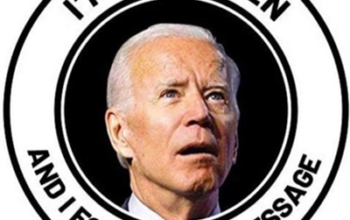Wow. Black and Hispanic folks want to protect their health. Apparently they are much smarter than white liberals who do not care about their health. Instead of a $100,000 spent figuring out why minorities do not believe government scams, how about a study on why white people believe a government proven to be a massive liar. And, the lies caused hundreds of thousands of deaths.
What they are really looking for is to create a message of lies that they could sell to the minority community.
““It became clear during the pandemic that vulnerable populations, such as children, communities of color, and lower-income communities, were disproportionately affected,” Sanderbeck said in an email. “Herd’s research directly addresses one of these populations and how they were impacted by the vaccine rollout and its communication.”
Everyone one was affected—we were all vulnerable—as much to government lies as the COVID itself. Schools, businesses and churches closed—government isolated us—and forced us to wear worthless masks so we could not see one another. Which was worse, the COVID or government lies and actions?
UC Berkeley professor awarded $100,000 to study vaccine hesitancy
MAXINE ESCHGER | Daily Californian, 12/4/23 https://dailycal.org/2023/11/14/uc-berkeley-professor-awarded-100000-to-study-vaccine-hesitancy
Herd’s research examines health behaviors and improvements to adherence to public health guidance within Black and Latine communities in California.
Denise Herd, a campus Graduate School of Public Health professor of behavioral sciences, has been awarded $100,000 to study COVID-19 vaccine hesitancy in Californian Black and Latine communities.
Her grant was one of 31 research projects across all 10 UC campuses funded by the California Collaborative for Pandemic Recovery and Readiness Research, or CPR3, according to a Berkeley Public Health press release Nov. 6. The press release states that the projects, awarded a collective $6 million in funding, aim to “examine the pandemic’s effect on Californians’ health and well-being.” Taytum Sanderbeck, CPR3 communications lead, noted that the effort was funded by the California Department of Public Health, or CDPH.
“It became clear during the pandemic that vulnerable populations, such as children, communities of color, and lower-income communities, were disproportionately affected,” Sanderbeck said in an email. “Herd’s research directly addresses one of these populations and how they were impacted by the vaccine rollout and its communication.”
Herd’s study aims to address the disparities faced in Black and Latine communities during the COVID-19 crisis and vaccine hesitancy, according to her research project page. In particular, it explores the role of local leaders and organizations in responding to the virus by examining how they framed and interpreted the pandemic to community members through messaging. Additionally, it investigates outreach strategies used to overcome neighborhood and economic barriers to COVID-19 services.
According to Sanderbeck, Herd’s research was in part selected for funding because it aligns with one of CPR3’s priority research goals on behavior change and communication: understanding health behaviors and finding possible improvements to adherence to public health guidance, such as vaccination.
With assistance from a Scientific Steering Committee, CPR3 focused its funding on four areas of research that focus on ways the pandemic impacted communities and individuals — the pandemic’s impact on children and adolescents, mental health, social and economic outcomes, behavior change strategies and public health communication, Sanderbeck noted.
CPR3 is a collaborative effort involving UCSF, California Health and Human Services and the California Department of Public Health, according to the press release. Additionally, Sanderbeck said the 31 research projects include collaborations with over 45 organizations to assist in the researchers’ findings, according to Sanderbeck.
“Pandemic recovery means creating a stronger, healthier, and more resilient public health system at the state and local level. California is leading the transformation and design of a modern public health infrastructure that ensures critical protections and prevention measures are in place – for everyone,” said CDPH Director and State Public Health Officer Dr. Tomás Aragón in a Sept. 20 press release, when the $6 million was first awarded to CPR3. “This research program will go a long way in ensuring our recovery is responsive to the ever-changing landscape of issues affecting the health of Californians.”



